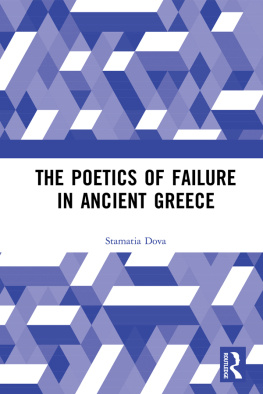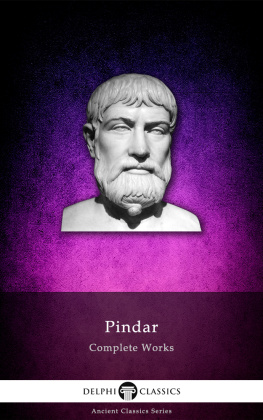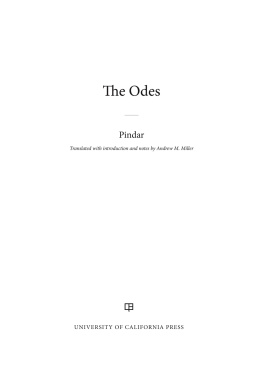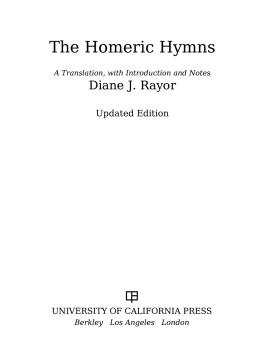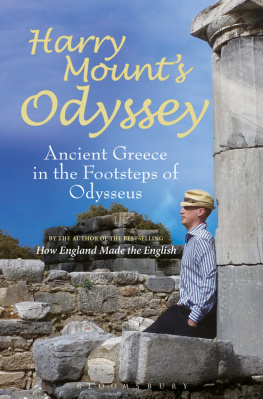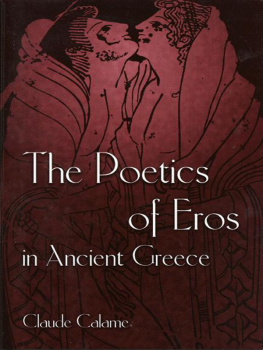The Poetics of Failure in Ancient Greece
The Poetics of Failure in Ancient Greece offers an innovative approach to archaic and classical Greek literature by focusing on an original and rather unexplored topic. Through close readings of epic, lyric, and tragic poetry, the book engages into a thorough discourse on error, loss, and inadequacy as a personal and collective experience.
Stamatia Dova revisits key passages from the Iliad and the Odyssey, the Homeric Hymn to Aphrodite, Pindars epinician odes, Euripides Herakles, and other texts to identify a poetics of failure that encompasses gods, heroes, athletes, and citizens alike. From Odysseus shortcomings as a captain in the Odyssey to the defeat of anonymous wrestlers at the 460 B.C.E. Olympics in Pindar, this study examines failure from a mythological, literary, and historical perspective. Mindful of ancient Greek societys emphasis on honor and shame, Dovas in-depth analysis also sheds light on cultural responses to failure as well as on its preservation in societal memory, as in the case of Phrynichos The Fall of Miletos in 493 B.C.E. Athens.
Engaging for both scholars and students, this book is key reading for those interested in how ancient Greek literary paradigms tried to answer the question of how and why we fail.
Stamatia Dova is Professor of Classics at Hellenic College Holy Cross in Brookline, Massachusetts and Associate in Hellenic Language and Literature at the Center for Hellenic Studies in Washington, D.C. Her publications include Greek Heroes in and out of Hades (Lexington Books, 2012).
First published 2020
by Routledge
2 Park Square, Milton Park, Abingdon, Oxon OX14 4RN
and by Routledge
52 Vanderbilt Avenue, New York, NY 10017
Routledge is an imprint of the Taylor & Francis Group, an informa business
2020 Stamatia Dova
The right of Stamatia Dova to be identified as author of this work has been asserted by her in accordance with sections 77 and 78 of the Copyright, Designs and Patents Act 1988.
All rights reserved. No part of this book may be reprinted or reproduced or utilised in any form or by any electronic, mechanical, or other means, now known or hereafter invented, including photocopying and recording, or in any information storage or retrieval system, without permission in writing from the publishers.
Trademark notice: Product or corporate names may be trademarks or registered trademarks, and are used only for identification and explanation without intent to infringe.
British Library Cataloguing-in-Publication Data
A catalogue record for this book is available from the British Library
Library of Congress Cataloging-in-Publication Data
A catalog record for this book has been requested
ISBN: 978-1-4724-7911-2 (hbk)
ISBN: 978-1-315-55458-7 (ebk)
Typeset in Times New Roman
by Apex CoVantage, LLC
A book on failure entails the inherent risk of becoming its own case-study. The irony of such a potentiality can permeate the project with self-doubt, perhaps more so than a book on any other subject. Nevertheless, failure constitutes an intriguing topic that encompasses all of humanity, as everything that pertains to human conduct is, has been, and will be subject to failure. Far from satisfactory, this initial delineation brings forth the error and its consequences as well as the unfortunate outcome of an otherwise well-thought-out endeavor. By the same token, given the relativity of performance standards, one persons failure may be another persons success. As all of this indicates, failure is inextricably intertwined with expectation and intention: we fail when we fall short of our anticipated success, when things go wrong and not according to (our perfect) plan. Therefore, failure can be caused by agency, circumstances, or both. As the result of lack of foresight, absence of focus, or simply an unfortunate concatenation of events, failures bite is that it may lower ones status, and as such may be desired by ones rivals or built in to their idea of success. The entities involved in this antagonism may be individuals, countries, or ideologies pursuing a goal while sharing trajectories of trial and error.
We can identify these trajectories in all domains of public and private life. From student exams and business enterprises to military campaigns and political movements, the experience of trial and error is embedded within our modus operandi. Not only do we fail, but we also try to understand why we did; failure presents us with a unique opportunity to identify our own potential. Provided we understand it properly, we feel that failure can even benefit us, perhaps even simply as a step on the way to success.
Did the audiences of ancient Greek hero-losers may even transcend the formidable forces that dealt them downfall instead of triumph; their failures do not count as zero in the product of their worth. Far from shying away from broken heroes, Greek myth remains preoccupied with the aftermath of their hardship, inviting all audiences to not only commiserate with but also learn from their suffering. Most importantly, Greek myth, as reflected in archaic and classical Greek poetry, does not perceive failure as the prerogative of mortals, unambiguously making immortals subject to it as well.
As
As a classicist, I first turned to archaic Greek poetry to understand failure. What does Homer have to teach us about failure? Though intrinsically opposed to Muse lets the man of twists and turns get away with a less than perfect nostos.
Even less perfect is the Herakles, the katabatic hero par excellence.
kindness reduces the conceptual space between upper and nether world, proving more powerful than any self-destruction induced by the divine jealousy of Hera.
An epic tradition.
The perils of immersion are further explored in the myth of Melikertes, son of Ino. Failure features in his myth differently, as the waters of the Saronic Gulf, where his mother leaps with him in her arms to avoid persecution, signal both their earthly demise and their translation into sea divinities.
A scenario of failed immortality is also at the heart of love at first sight with Anchises is her punishment. As Anchises realizes that the immortalization of lovers is a thing of the past, his divine partner accepts her place in the final delineation of boundaries as dictated by Zeus, and all audiences are warned about the injudiciousness of tampering with the limits of mortality.
winner of the footrace, defeating younger and faster runners. He repeats his accomplishment in Scherie, winning the discus competition after the young Phaeacian prince Laodamas and his friend Euryalos insult him, saying that he is no athlete and by extension, not a nobleman. Not only does their insult bespeak the strong connection between class and sport in Homer, but it also jolts Odysseus back into action, infusing him with the spirit he needs to confront the suitors in Ithaca.
inadequacy and wickedness. Odysseus establishes himself as the uncontestable winner through the utter failure of all his competitors, and his absolute victory is inextricably intertwined with their demise.
by the Pythia, gives an antiphonal response to the epinicians rejection of all losers.
guilt, as the Athenians had initially supported, yet a year later abandoned, the disastrous uprising. Nevertheless, despite being greeted by collective aposipsis, Phrynichos ultimately generated a dynamic response to the destruction of Miletos by successfully employing the power of tragic

